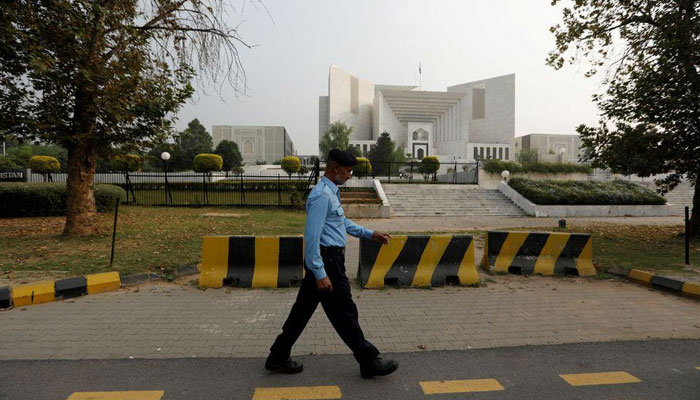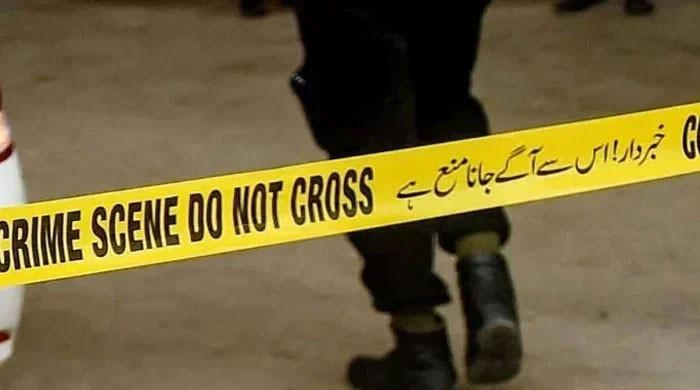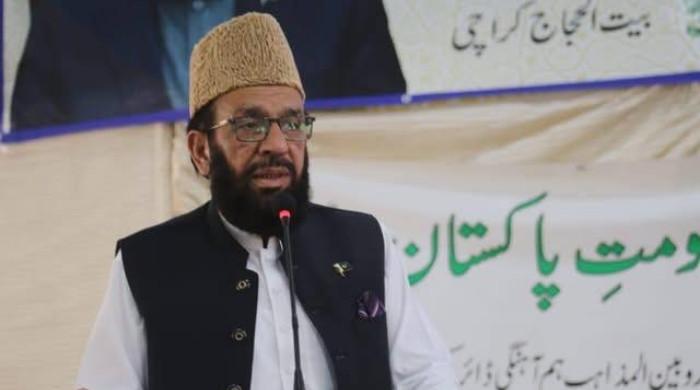Mubarak Sani case: CII identifies ambiguities in parts of SC verdict
Council meeting finalised proposals to be sent to SC to make verdict comprehensive
March 06, 2024

- CII finalised proposals for SC to make verdict comprehensive.
- SC directed its office to send Feb 6 decision's copy to CII, others.
- Development was noted during council's 236th meeting.
ISLAMABAD: After the Supreme Court sought the assistance of the Council of Islamic Ideology (CII) regarding the Mubarak Sani case, the religious body has identified ambiguities in some parts of the apex court's verdict granting bail to a member of the country's Ahmadi community, The News reported on Wednesday.
The development was noted during the CII's 236th meeting, headed by Chairman Qibla Ayaz.
In the meeting, the council discussed the SC verdict in the aforementioned case, stating that it would convey its finalised proposals to the court to help them make a comprehensive decision.
“The CII has identified clause of the verdict which created ambiguities. The council meeting also finalised proposals, which would be sent to the Supreme Court to make the decision comprehensive,” the CII said.
It should be noted that the apex court had directed its office to send a copy of its February 6 judgment to the CII and others for their opinion.
The court had declared that the bail issue was between the accused and prosecution and therefore no third party would be heard to that extent; however, any institution or individual could assist the court on the constitutional and religious aspect of the matter apart from the above-mentioned petitioners.
The court had directed its office to send one copy of the order to Darul Uloom Karachi, Jamia Naimiyyah Karachi, Jamiat Ahl Hadith Lahore, Quran Board and Jamia Al Mantazar and held that if the said institutions wanted, they should assist the court on the constitutional and religious aspects of the matter and submit a written opinion.
Chief Justice Qazi Faez Isa, who was heading the three-member bench overseeing the case, remarked that the purpose of the revision was to correct the mistake. He said if a mistake had been made, then it could be corrected.
“We have to look at the constitutional and religious aspect. I am not afraid of you people, but above, there will be exemption here but above will not be exempted,” the CJP remarked.
Ulema board in GB
On the other hand, the CII also suggested that the government form an effective board of Ulema to ensure peace and sectarian harmony in Gilgit-Baltistan. This suggestion came in response to an earlier letter from the then-caretaker prime minister concerning the matter.
It was proposed that the Ulema board should be made a regular forum. It was observed that Gilgit-Baltistan was a sensitive area, which is also a vital route of CPEC; therefore, maintenance of peace there would play a key role in the country’s economy.
The meeting also called for traders to maintain the sanctity of Holy Ramazan and to uphold Islamic values, they should refrain from hoarding and profiteering.











